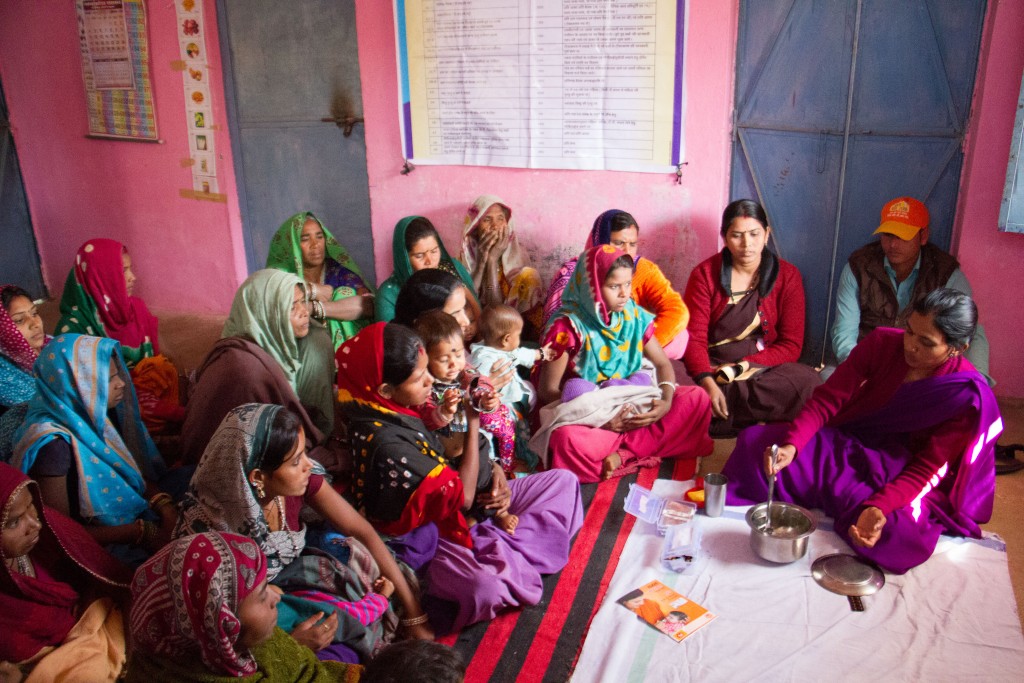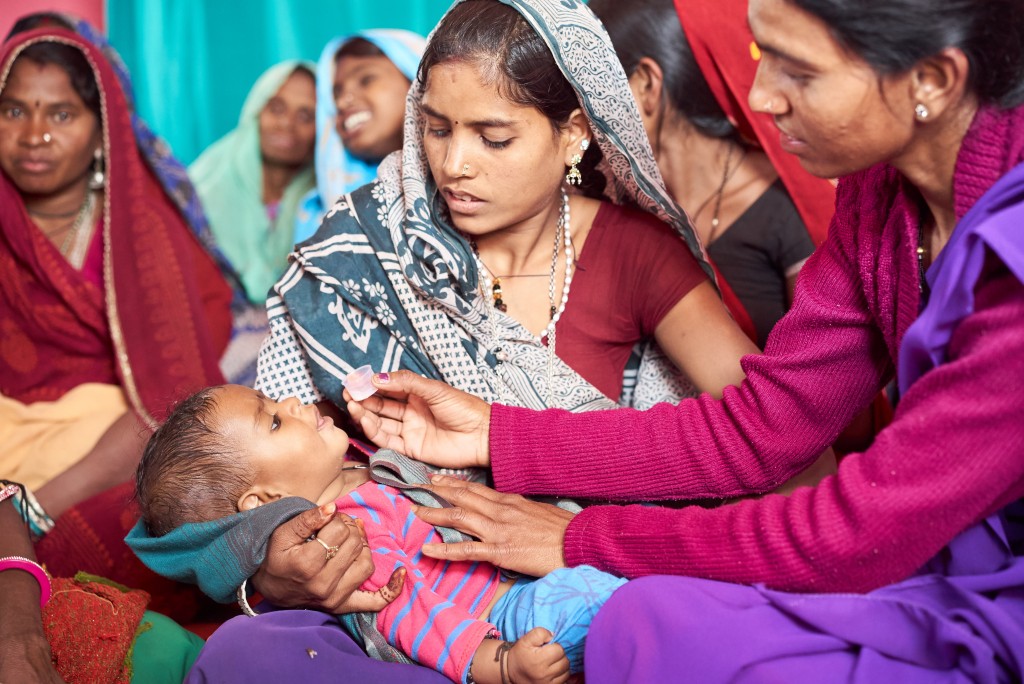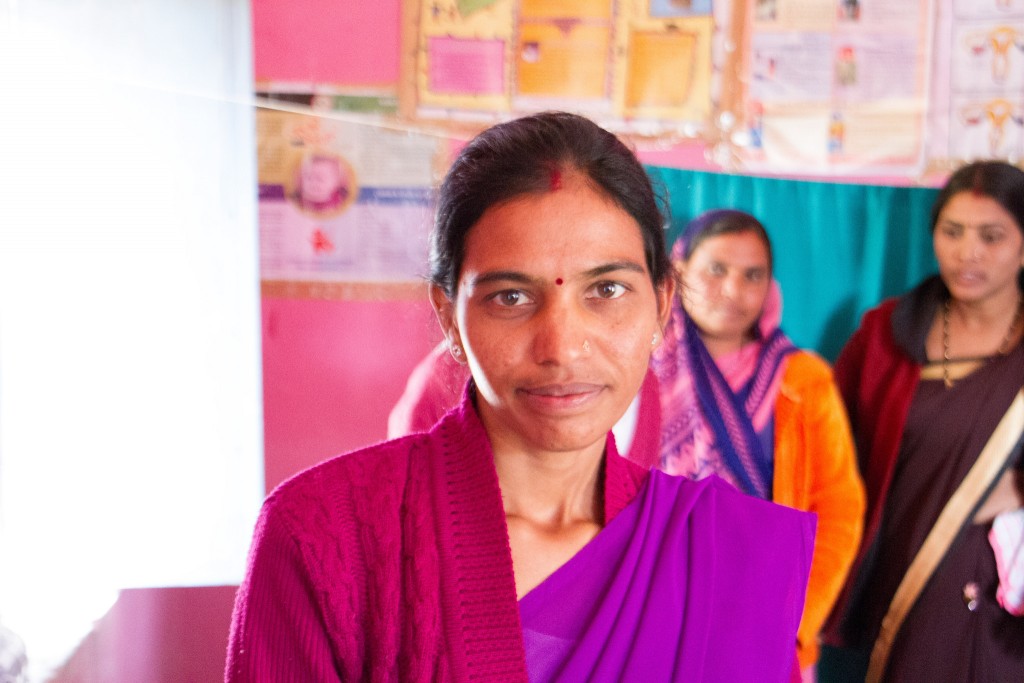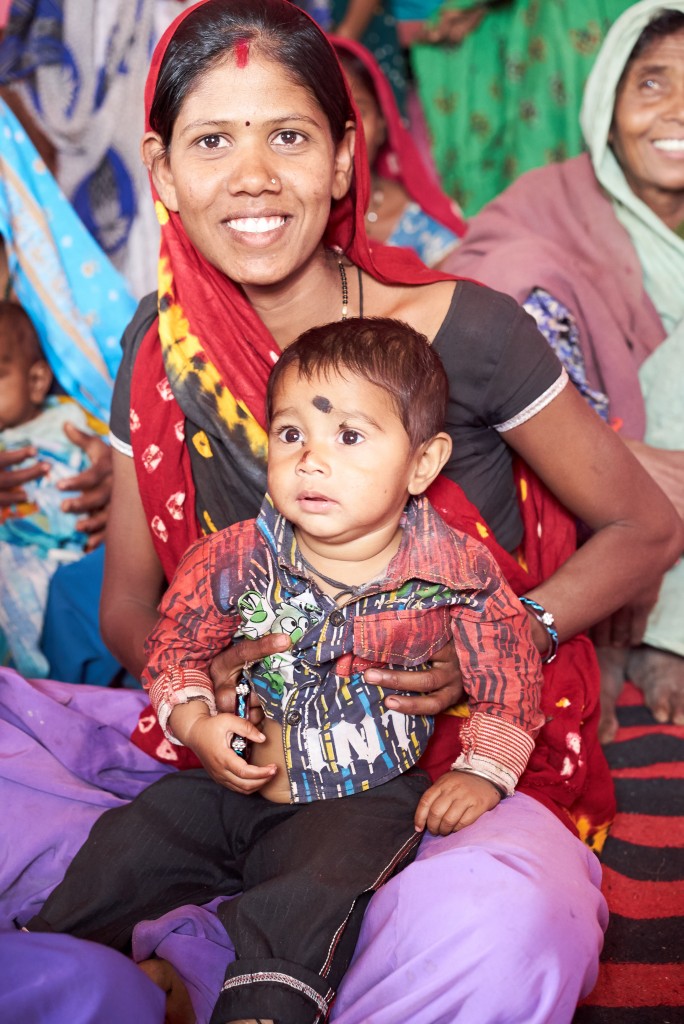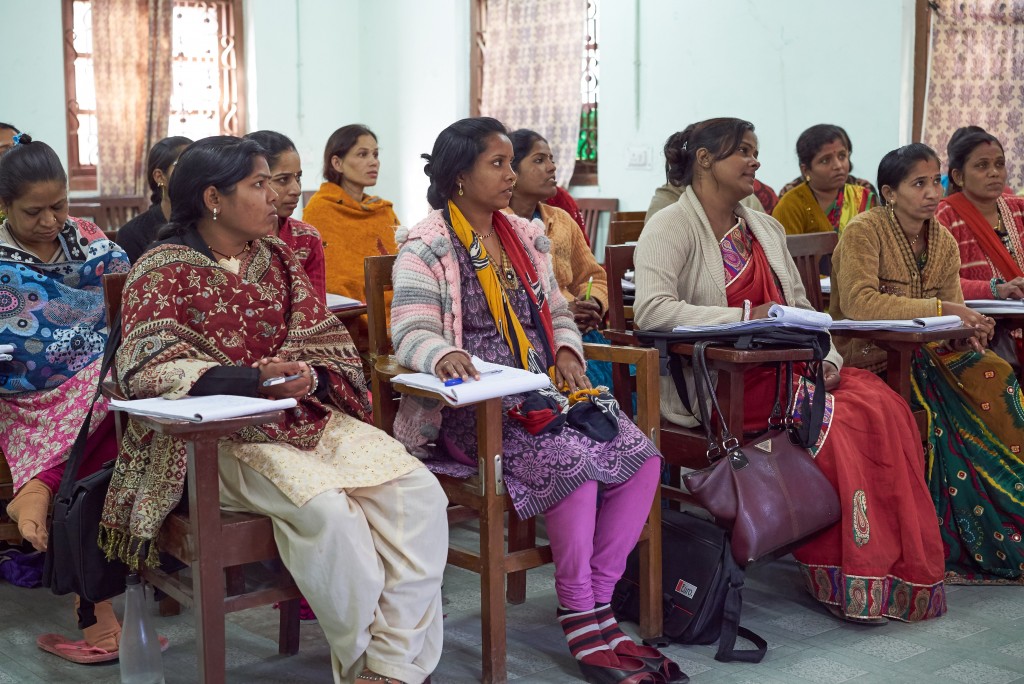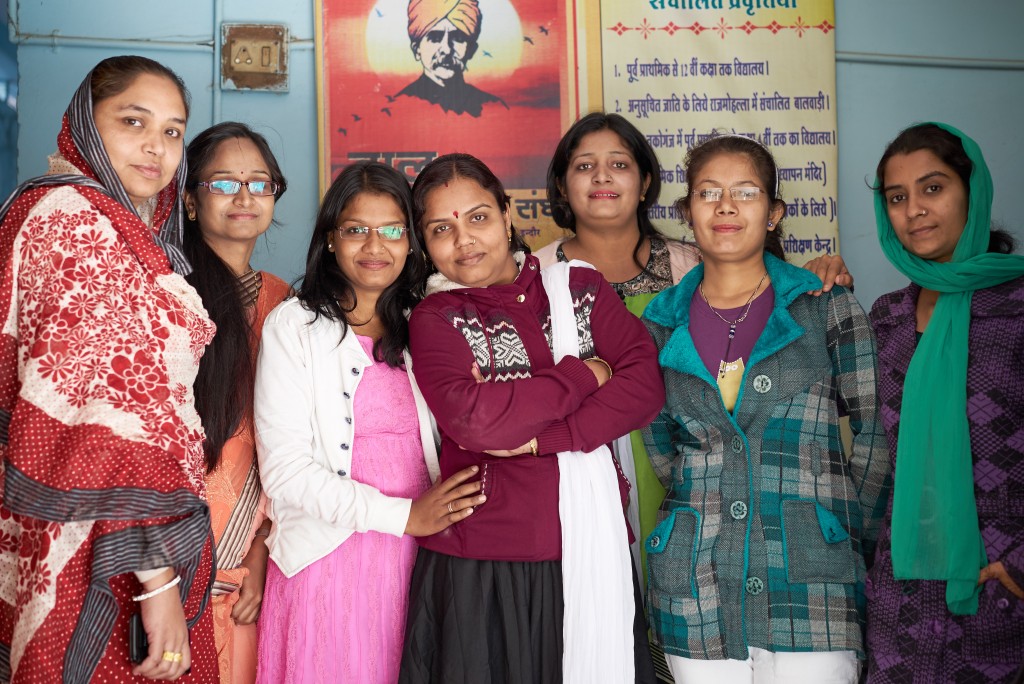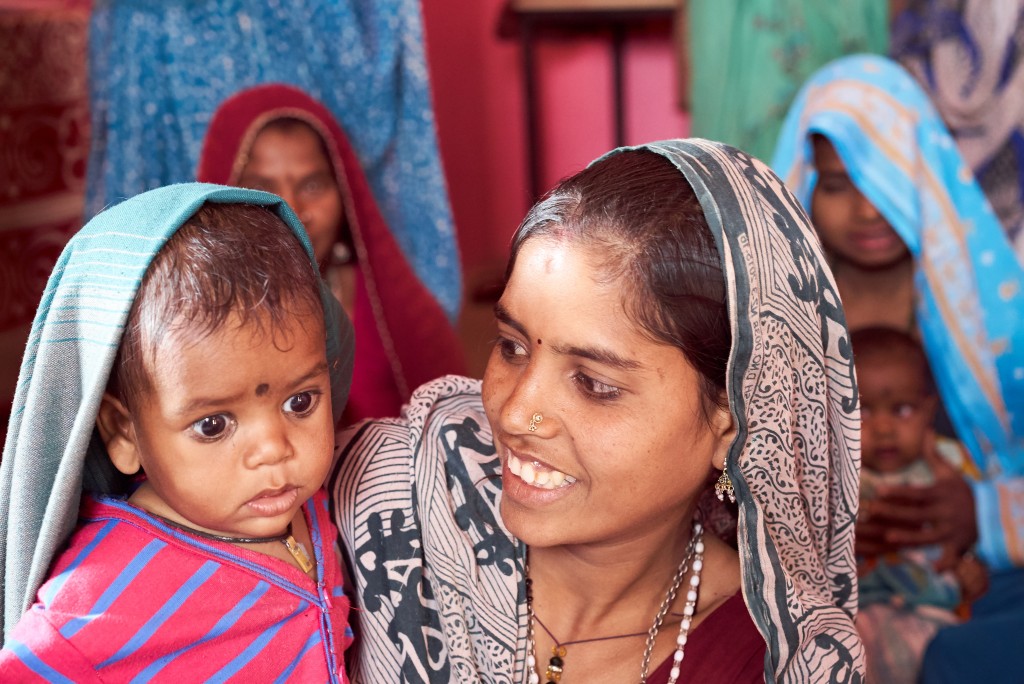In remote Makhodia Village, Jhabua District in central India, a group of about 25 women gather in a small brightly painted room, protected from the heat of the midday sun inside the village health center. They are dressed in vibrant cloths–purples, blues, reds, and pinks that stand out against one another–and hold sleeping and sometimes squirming babies as they listen intently to Ms. Premlata Bhamor at the front of the room. Premlata, the local Accredited Social Health Activist (ASHA) in the village is conducting a health education session for mothers. Today, over the giggles and cries of children, she speaks about child diarrhea, a major problem here. She describes the signs, symptoms, and potential seriousness of diarrhea, and the WHO-recommended treatment: a combination of oral rehydration salts (ORS), a formula that replaces fluids and salts lost to dehydration, and zinc, which reduces the duration and intensity of diarrhea and protects against future episodes.
Sitting cross-legged on the floor, Premlata showcases proper hand washing technique and explains how hand washing with soap can effectively prevent diarrhea and other diseases. She demonstrates how to mix a sachet of ORS into clean water, stirring a metal pot with a spoon until the powder dissolves fully into the water. She also mixes a zinc tablet into a small cap of water and gently administers it to a young girl laying in her mother’s lap.
ASHAs like Premlata are village-level health volunteers who are nominated by their village assembly, known here as the Gram sabha, and who are trained and incentivized by the National Health Mission to work within their communities, often hard-to-reach areas, to provide health messaging and basic treatments. Since 2013, CHAI has engaged with over 107,000 ASHAs across three states in India that account for over 40 percent of the country’s diarrhea deaths for children under 5 to combat these deaths in conjunction with state and national governments and partners, with funding from the IKEA Foundation and the Bill & Melinda Gates Foundation.
The child diarrhea project focuses of three areas of work, with the main focus of the program being on frontline providers such as ASHAs and rural medical practitioners (RMPs). In the public sector, CHAI works at the policy level with state leadership, the facility level to improve stock and consumption reporting, and the community level with ASHAs. In the private sector, the project aims to change provider behavior and improve usage of ORS and zinc by practice and repeated usage, and also create a sustainable last-mile supply chain. At the level of the caregiver, CHAI and partners target mothers with campaigns to encourage prompt treatment and reinforce that ORS/zinc is the recommended treatment.
As an integral part of the comprehensive strategy to combat diarrheal deaths, ASHAs are supported by Angan Wadi Workers (AWWs). This cadre of community health worker responds to the health and nutritional needs of their communities, serving as preschool teachers and nutrition providers to pregnant and lactating mothers, adolescent girls, and children under 6. AWWs are recruited by the Department of Women and Child Development and are trained by their supervisors. In the state of Madhya Pradesh alone, CHAI and partners have reached 92,000 AWWs by training 3,000 of their supervisors.
Frontline health workers such as ASHAs and AWWs have worked on a large scale to affect change in their communities. More than 500,000 one-to-one field visits have been made to reinforce diarrhea-related messaging. According to the National Health Management Information System (HMIS), reporting of diarrheal cases at public health facilities has increased by nearly 100 percent and diarrheal deaths among children under 5 have decreased by 25 percent in Madhya Pradesh since the start of the project in 2013. By the project’s midline, ORS usage among children with diarrhea in the state had increased from 30 percent to 56 percent, and zinc usage had increased from under 1 percent to 24 percent in less than three years of implementation.
With continued focus on skill enhancement of frontline health workers, regular monitoring support, policy-level advocacy to ensure uninterrupted supplies of ORS and zinc across the state, and meaningful engagement with caregivers, CHAI and partners are steadily working toward achieving the global goal of “Zero Diarrhea Deaths” in the states of Madhya Pradesh, Uttar Pradesh, and Gujarat.





